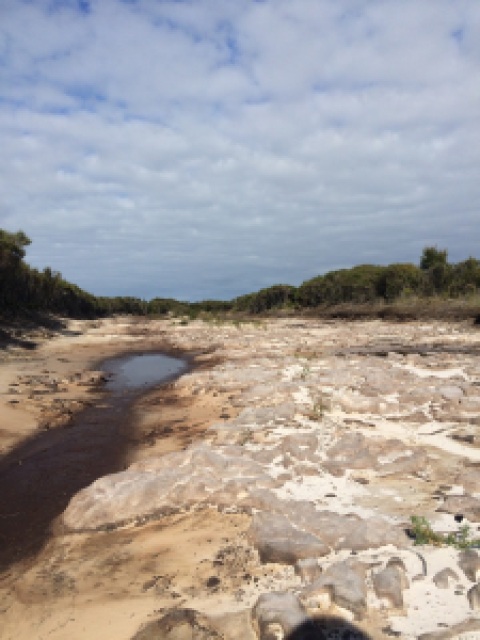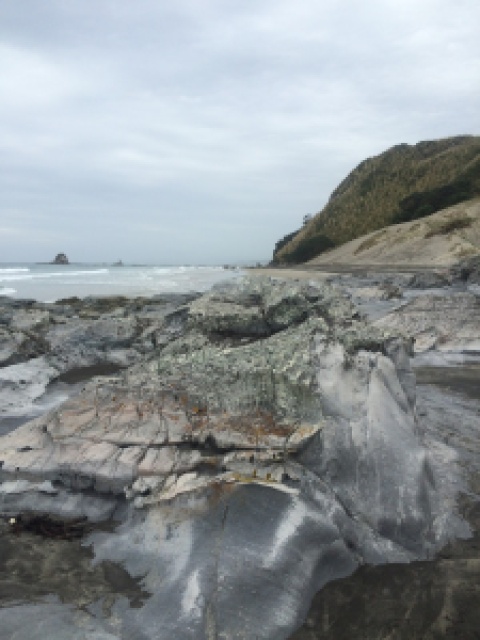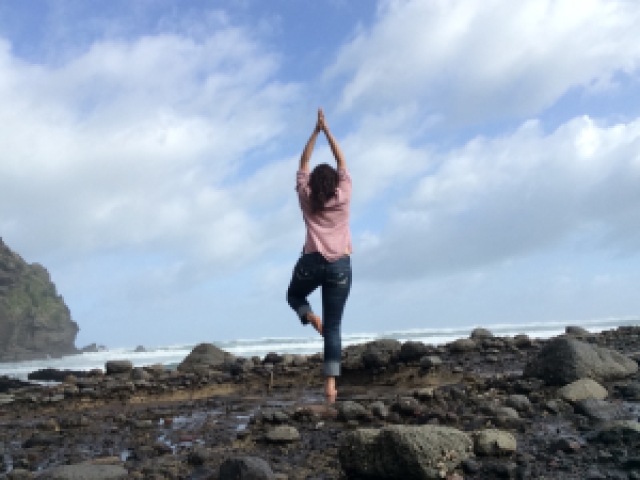When I first arrived in New Zealand, my plan was to spend time in Wellington. I wanted to get a job and make some money, then explore the North Island, and finally head South. I wanted to spend the majority of my time in this country on the South Island. I’ve been there. I knew I loved it: remote, wild, barren, soulless, a mess of adjectives that I can’t even come up with. Mountains, sea, glaciers, rainforests, pure blue lakes, windswept cliffs. But somewhere along the line, I ended up in the Northland – the Far North, to be exact, the northernmost district in New Zealand.
I lived in Paihia – a backpacker town with a lot of other transients. And I loved it. But when I began exploring farther afield – all farther north than the Bay of Islands – I found a landscape and a soul that I didn’t expect to find.
why i love the northland
If the South is soulless, the North is soulful. Cape Reinga is where the spirits depart the land, according to Maori legend. If you listen closely, over the sounds of tourists, the sound of the ocean meeting the sea, the sound of the Tui, you can hear the whisper of the souls as they fly off the land. A half an hour’s drive from the Cape is Spirits Bay.
Near Dargaville, the Kai Iwi lakes. Even the pohutakawa tree holds a spiritual designation in New Zealand lore; the oldest one is at Cape Reinga and it is from here that the spirits take flight. I felt peaceful at Rainbow Falls, behind the curtain of water that obscures the verdant cave from prying eyes. I felt serenity at Matapouri Bay, hiking alone through the palm grove over the headland to the Mermaid Pools. Here, I watched the storm roll in as the ocean swell crashed over the rocks into the pool I sat in.
I felt tranquility on the hill over Cape Reinga… even though there were fifty people walking down the path to the lighthouse, we sat alone at the top of the hill watching the oceans meet.
Everyone comes to the Bay of Islands. Everyone stays there, takes a day to trip out to Cape Reinga, and then leaves. They go south. Or they go back to Auckland to fly home. When Chris and I took our ill-fated road trip that led to a car mechanic in Rawene, it also led to my discovery of the western coast.
Here, in the midst of the Waima Forest, I sit in a lodge with no wifi, no power outlets (I have a fully charged computer and I’m writing in a text document that I will later copy and paste,) and no other people. I can see every single star in the sky. I hear the Morepork, I’m hoping to hear the Kiwi. I can see the lights at the only other house on this mountain road – a kilometre away. Just outside the main gate of the lodge is a unsealed gravel track up into the mountain. I’ll get up early and go for a walk through there.
The sun sets on this side of New Zealand. It doesn’t disappear behind the hills like it does in Paihia – no, it bathes the dark green hills in a pale golden light that seems to last for hours. At the right time – the magic hour – you can see nooks in the hills that you didn’t know existed.
My host tells me this, and she’s been here for 16 years. But I’ve seen it too. Out at the Opononi Heads, the sun sets over the restless Tasman Sea, the sand dunes on the north end of the harbour roll gently toward the sea, the beach settles into the harbour and there’s not another soul to see it.
Beyond the beauty of the Far North, I can’t recommend the people highly enough. I was the only guest with Lois and Nils that night in the Waima Forest, and Lois wandered into the lodge in the evening with a small loaf of warm, freshly baked, bread and a basket of cherry guavas. The next morning, she led me into the sheep paddock where we fed the sheep. She talked with me as if I was an old friend, not a stopover guest at a hotel. A week ago, I was talking with my friend Taylor on one of our last days in town and she said some things that resonated:
“This place is one of the most beautiful places in the world and everyone is just happy… you can’t describe it.”
“For me, being a backpacker, you don’t expect to meet a lot of locals but when they start waving to you and knowing your coffee order, and they get a genuine smile when you say you’ll be back next summer…”
Several days after that, I was talking to one of my bar regulars, a local guy named Richard. He and his wife and friends were among the first people that I met upon starting my job at the bar and we’ve always been able to talk frankly. He asked me what I would miss the most about leaving Paihia and my answer was immediate: the people.
I have never lived in a town where people honk when they drive past you, no matter if you’re walking down the street or working at your bar – just to say hi. I’ve never lived in a town where people know me by my bicycle, where they wave at me as I pass their house. I’ve never lived in a town where I can walk into anywhere and know at least three people. And it’s not just that – it’s that every single person I met (ok, not every single one, but most of them) was genuinely happy to meet me, to get to know me, to ask me about my day, ask me about my plans, tell me about their day, their work, their kids, dog, hobbies.
(I have lived in places where people know my coffee order but that’s because I’m an addict. Hi, I’m Sarah and I’m a coffeeaholic.)
I count myself very lucky. I feel like I knew the real Paihia. It’s very much a tourist town – it depends heavily on the summer tourism because it literally dies in the winter. And the tourists that come in for a day or two, spend money on boat trips or Cape Reinga tours, they don’t see the real town. They don’t hike up the track behind School Road, they don’t go for a bicycle through the golf course and down to Wairoa Bay on the shitty gravel road. They don’t know who makes their drinks or their dinner; they don’t care.
They aren’t interested in the dive bar on the beach: they want the flashy restaurant on the pier. They don’t have a network of locals who have your back when you meet someone and subsequently lose them, who tell you they’ll “talk to him,” (and by “talk to,” probably mean “do their knees in.”) And probably mean it.
Even though I was ready to leave, ready to tackle more adventures, it was very hard for me to leave town. It was hard to say the last goodbyes to people, it was hard to drive out of town knowing that it will be six months before I go back. I count myself lucky to have had it for a time. And similarly, it was hard for me to leave the North. To drive back toward Auckland. To cross the Harbour Bridge and pass the airport. Because it meant I wasn’t in the North anymore. Even though the west coast was phenomenal (huge props to Rob for the tip) and even though Piha and Karekare were unreal… there’s a tug on my heartstrings when I think about the Northland.
I’ll leave the South Island to Young Adventuress and Backpacking Matt. They have the monopoly on it anyway. And I’ll leave it to the 18-year-old backpackers that descend on Queenstown each winter to wreak havoc on the town, leaving it broken and soulless come October. Give me the soulful North – no less wild, no less remote. But with a community spirit that doesn’t break when the tourists leave.












thanks 🙂
I have come across so many people that just never make it to the North. You absolutely should come back and do it (and the Coromandel, if you haven't been there!)
It's amazing. I highly recommend it
thank you!!
Its so great to hear how much you loved the North. I would love to visit one day, you make it sound like such a wonderful place!
Love this. I spent a whole year in New Zealand and it was incredible but I just ran out of time to spend in the Far North. I would LOVE to go back and experience it as you did!
How absolutely breathtaking – I'd love to spend some time there just collecting my thoughts and being one with nature!
Wonderful read. Enjoyed hearing about your experiences and about your emotions. Great job describing the places you visited. Thanks for sharing it all.